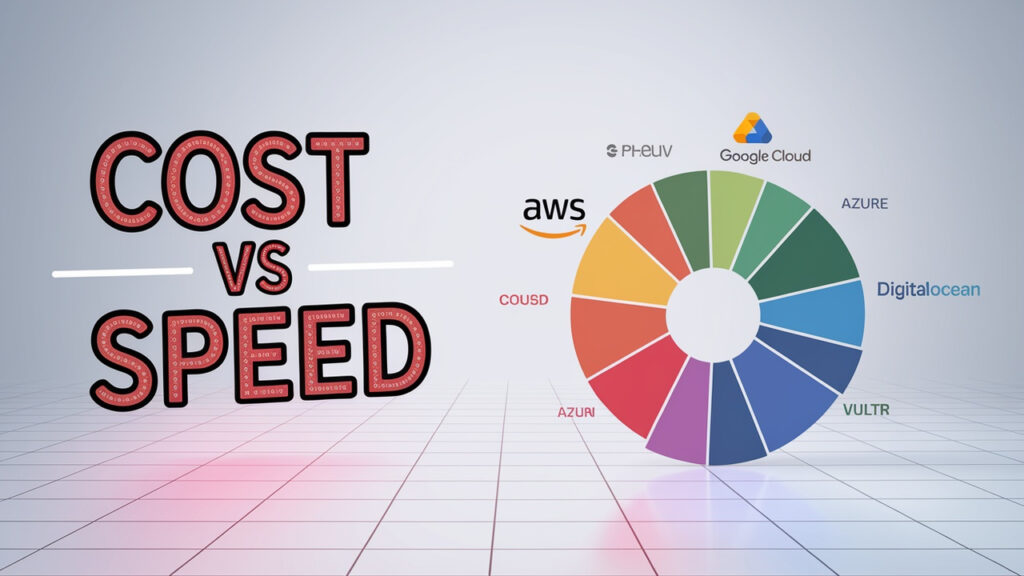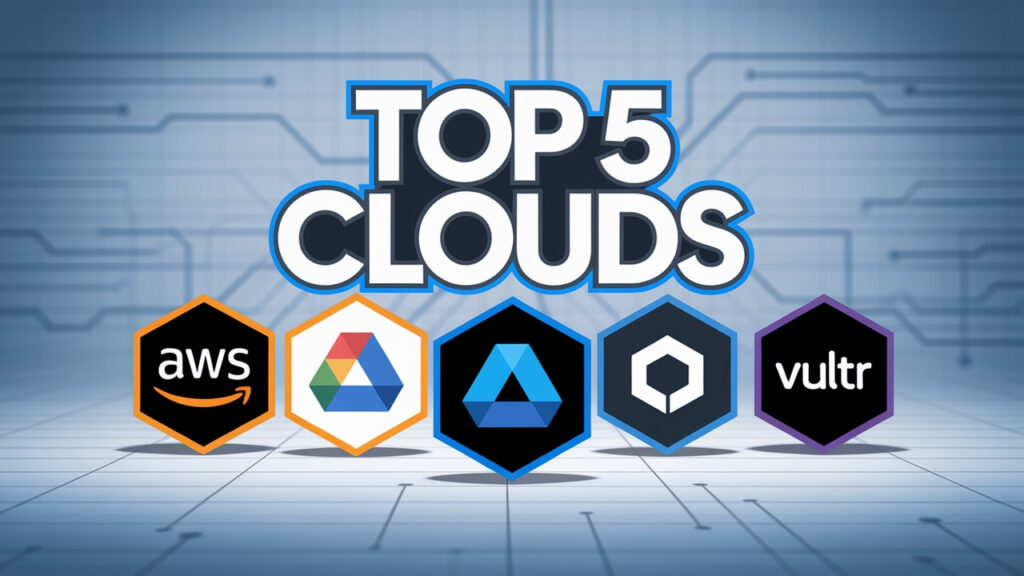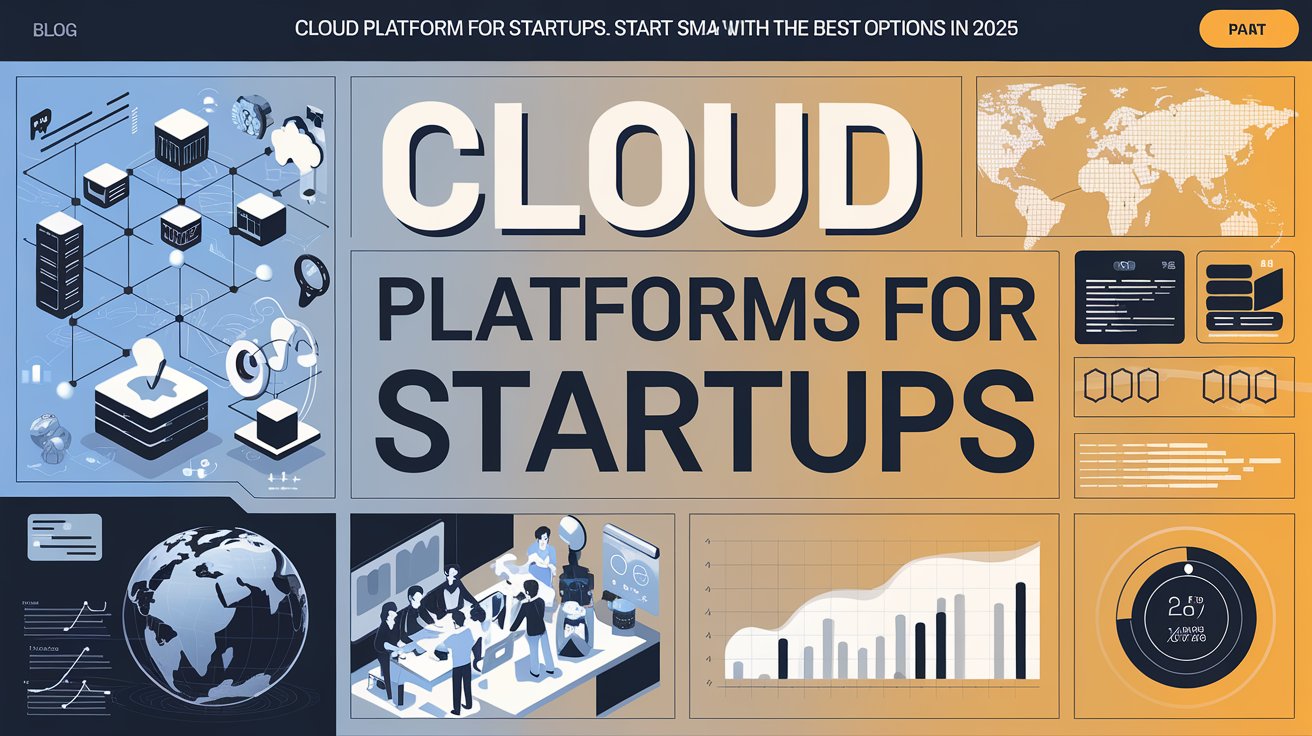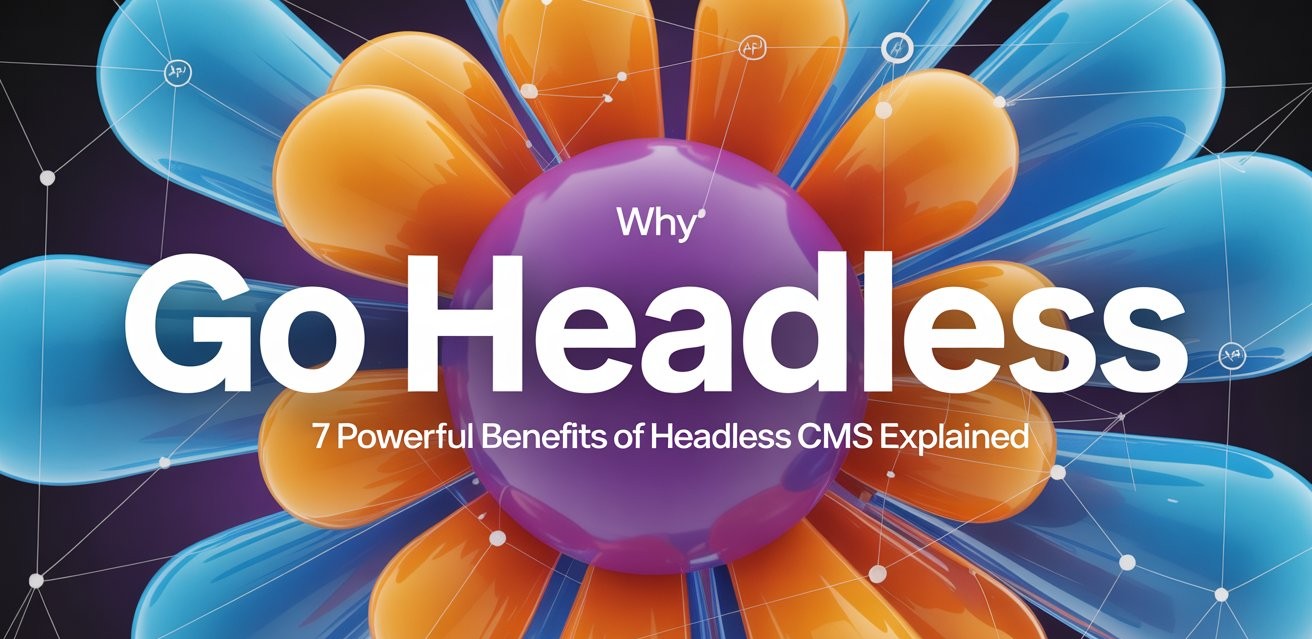Table of Contents
Starting a business in 2025? Then choosing the right cloud platform for startups should be at the top of your priority list. Whether you’re launching a SaaS product, a mobile app, or a data-driven AI platform, cloud services are your ticket to scalability, flexibility, and innovation.
In this guide, we’ll explore the best cloud platforms for startups, highlight their features, pricing, perks, and show you exactly how to choose the one that fits your goals.
🚀 Why Every Startup Needs a Cloud Platform

Cloud computing has redefined how startups build, test, and scale products. Choosing a reliable cloud platform for startups empowers early-stage businesses to:
- Deploy applications globally with minimal infrastructure cost.
- Scale servers, databases, and storage based on real-time needs.
- Access advanced services like AI, machine learning, and big data.
- Securely store user data and manage compliance.
- Collaborate remotely with distributed teams.
Without the right cloud infrastructure, startups risk slow performance, outages, or ballooning costs as they grow.
🌐 Top 5 Cloud Platforms for Startups in 2025


Here are the top cloud platform for startups that are popular in 2025 and trusted by both unicorns and lean bootstrappers.
1. Amazon Web Services (AWS)
Why It’s a Top Cloud Platform for Startups:
AWS is the market leader and offers over 200 services ranging from compute, storage, databases, to machine learning and IoT. Startups like Airbnb, Reddit, and Slack launched using AWS.
Startup Program:
✅ AWS Activate – Up to $100,000 in credits, AWS Business Support, and training resources.
Key Services:
- EC2 (Virtual servers)
- S3 (Object storage)
- Lambda (Serverless)
- RDS & DynamoDB (Databases)
- CloudFront (CDN)
Pros:
- Global reach with 32+ regions
- Scalability for millions of users
- Trusted reliability and uptime
Cons:
- Complex billing and pricing
- Slightly steeper learning curve
Example Use Case:
A startup developing a photo-sharing app uses EC2, S3 for storage, and Lambda for background image processing.
Focus Keyword Usage:
Startups needing a cloud platform for startups with massive scalability often turn to AWS.
2. Google Cloud Platform (GCP)
Why It’s a Great Cloud Platform for Startups:
GCP is known for big data, machine learning, and tight integration with Android and Firebase. It’s ideal for startups focused on mobile apps, AI, or analytics.
Startup Program:
✅ Google Cloud for Startups – Up to $200,000 in credits, mentorship, and Google Workspace access.
Key Services:
- Firebase (Mobile backend)
- BigQuery (Real-time analytics)
- Cloud Run (Serverless containers)
- Vertex AI (AI/ML development)
- Cloud Functions (Event-driven architecture)
Pros:
- Seamless for mobile-first startups
- Strong AI/ML ecosystem
- Transparent billing
Cons:
- Fewer global data centers than AWS/Azure
Example Use Case:
An AI startup analyzing user behavior in real-time uses BigQuery + Vertex AI to train models quickly and cost-effectively.
Focus Keyword Usage:
If you’re building smart apps or analytics-heavy products, GCP might be the best cloud platform for startups like yours.
3. Microsoft Azure
Best Cloud Platform for Startups in Enterprise & B2B Space
Azure integrates perfectly with Windows, .NET, and Microsoft 365 tools. It’s preferred by startups that plan to partner with enterprise clients or government projects.
Startup Program:
✅ Microsoft for Startups Founders Hub – Azure credits, GitHub, Power BI, and Microsoft mentors.
Key Services:
- Azure App Services
- Cosmos DB
- Azure Functions
- Azure AI & Cognitive Services
- Azure OpenAI (ChatGPT access)
Pros:
- Strong enterprise integration
- AI and analytics support
- Excellent DevOps suite
Cons:
- Less intuitive dashboard
- Can get expensive for certain workloads
Example Use Case:
A startup building legal compliance tools for HR departments uses Azure App Services, connects to Power BI dashboards, and integrates Teams.
Focus Keyword Usage:
Azure is a reliable cloud platform for startups building solutions for enterprise or government sectors.
4. DigitalOcean
Ideal Cloud Platform for Startups on a Budget
DigitalOcean is known for developer simplicity, fast deployment, and transparent pricing. It’s great for bootstrapped startups and solo developers.
Startup Program:
✅ DigitalOcean Hatch – Up to $5,000 in credits and access to a startup community.
Key Features:
- Droplets (Easy-to-launch VMs)
- App Platform (Fully managed PaaS)
- Managed Databases (PostgreSQL, MySQL)
- Kubernetes
- Simple Monitoring
Pros:
- Clear pricing (starts at $4/month)
- Great documentation
- Quick deployment
Cons:
- Not built for complex enterprise workloads
- Fewer regions than larger providers
Example Use Case:
A founder launches a minimum viable product (MVP) with a static front end and API hosted on DigitalOcean App Platform—live in minutes.
Focus Keyword Usage:
DigitalOcean is a developer-friendly cloud platform for startups that value speed and simplicity.
5. Vultr
Affordable Cloud Platform for Startups with High Performance Needs
Vultr is rapidly becoming a favorite for startups that want raw compute power, edge locations, and customizable infrastructure.
Key Services:
- High-Frequency Compute Instances
- Bare Metal Servers
- Block Storage & Snapshots
- Global CDN & Load Balancer
Pros:
- Performance-optimized compute
- Competitive pricing
- Multiple data centers
Cons:
- No managed AI/ML tools
- Limited startup support programs
Example Use Case:
A video streaming startup chooses Vultr for high-speed content delivery with edge locations close to users.
Focus Keyword Usage:
For resource-heavy applications, Vultr offers a blazing-fast cloud platform for startups needing top performance.
🔎 How to Select the Right Cloud Platform for Startups

Here’s a decision framework:
| Need | Recommended Cloud Platform for Startups |
|---|---|
| AI/ML, Big Data | Google Cloud Platform (GCP) |
| Enterprise/B2B | Microsoft Azure |
| Developer Simplicity | DigitalOcean |
| Maximum Scalability | AWS |
| High-performance edge compute | Vultr |
Tip: Always review the startup programs—most offer generous credits and mentorship!
📊 Feature Comparison Table (Extended)
| Feature | AWS | GCP | Azure | DigitalOcean | Vultr |
|---|---|---|---|---|---|
| Startup Credits | ✅ Up to $100K | ✅ Up to $200K | ✅ Up to $150K | ✅ $5K | ❌ |
| AI/ML Services | ✅ | ✅ (Best) | ✅ | ❌ | ❌ |
| Pricing Simplicity | ❌ | ✅ | ❌ | ✅ (Best) | ✅ |
| Deployment Speed | ★★★☆☆ | ★★★★☆ | ★★★☆☆ | ★★★★★ | ★★★★☆ |
| Free Tier | Yes | Yes | Yes | Yes | Yes |
📹 YouTube: Which Cloud Platform Is Right for Startups?
🔗 Related Posts You’ll Love on VirallInsights
- Supabase vs Firebase: The Ultimate Developer’s Guide
- Laravel or Node.js in 2025? What Developers Should Know
- Best API Integration Tools for Smart Development
✅ Final Thoughts
Choosing the right cloud platform for startups isn’t just a technical decision—it’s a strategic one. Your platform determines how fast you scale, what services you can use, and how much you’ll spend over time.
To recap:
- Choose AWS or Azure for global scale and enterprise reliability.
- Pick GCP if you’re building AI/ML-driven applications.
- Go for DigitalOcean or Vultr if you’re bootstrapped or need fast, budget hosting.
And don’t forget—take full advantage of the startup credits and mentorship programs. That’s free rocket fuel for your startup journey.



